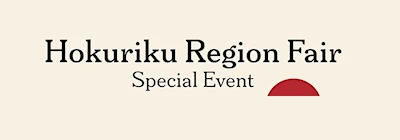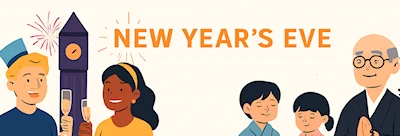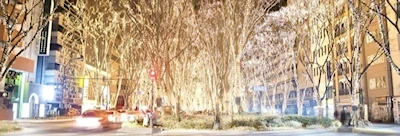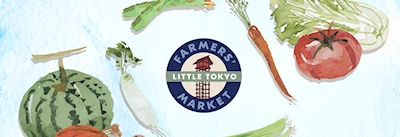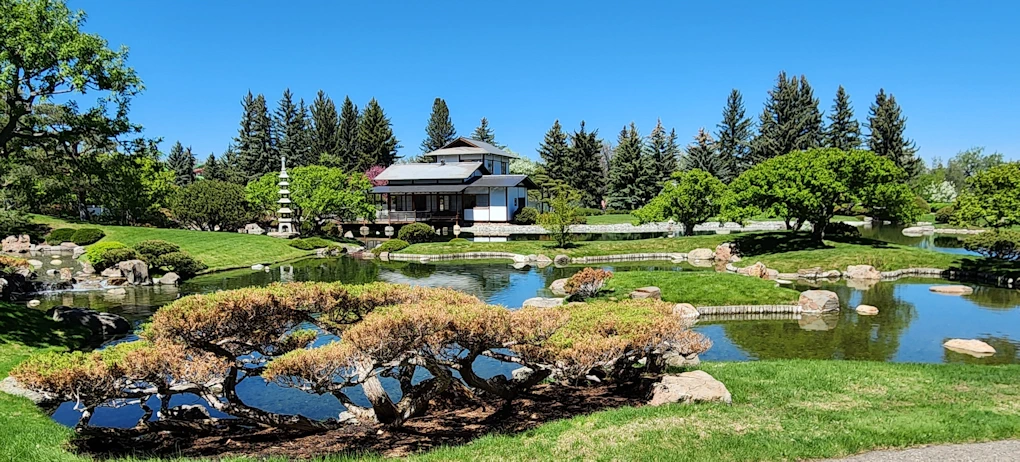Nikka Yuko Japanese Garden
Event Location
Lethbridge AB, T1K 2R2
Established during Canada’s Centennial in 1967, Nikka Yuko was built to recognize contributions made by citizens of Japanese ancestry to the multi-cultural community of Lethbridge, Alberta, and as a symbol of international friendship. Its name was created from the Japanese words Ni (from Nihon meaning Japan), ka from Kanada or Canada, and Yuko, which translates as 'friendship' to mean “Japan-Canada friendship”.
The idea for Nikka Yuko began with a small group of people: Reverend Yutetsu Kawamura, a Canadian Buddhist priest, his wife Yoneko, and Cleo Mowers, publisher of the Lethbridge Herald. Their vision was to create a Japanese-style garden that reflected the magnificent mountain and prairie scenery of southern Alberta. In Japanese garden design philosophy, nature is interpreted through abstract and artistic symbolism, which results in a very intriguing landscape. When Kurt Steiner, the manager of the city tourism organization, heard the idea, he immediately promoted it, and the surrounding community came together to champion a unique event in a small Canadian city.
From the beginning, it was agreed that the garden must be authentic and of the highest quality, therefore, respected Japanese garden designer and landscape architect Tadashi Kubo, of Osaka Prefecture University was commissioned to design it. A Japanese garden not only reflects the local natural landscape, but also the culture. Kubo embarked on an intensive study of the land, its people and their way of life, determining how the garden would be used, before submitting the master plan. His colleague, Masami Sugimoto, also of Osaka Prefecture University, oversaw the construction, evaluating and adjusting each detail on site until every aspect of the garden was harmoniously balanced.
As a result, Nikka Yuko expresses the merging of Japanese and Canadian culture in a garden rich in symbolism. It captures the signature of the southern Alberta landscape while simultaneously integrating traditional Japanese philosophy and symbols. Each element of the garden has been carefully chosen and maintained to bind the entire garden together in perfect harmony. Water is important, refreshing the spirit with a tumbling waterfall, gurgling stream, and reflective pond. Plantings of forest and meadow layer the garden in soothing hues of green. Meticulously pruned trees and shrubs shape the serene setting, and in season, become focal points and symbols on their own. A brief appearance of spring flowers or autumn colour signifies the fleeting experience of life.
Rocks are among the outstanding features of Nikka Yuko. Originating from a nearby mountain pass, the rocks are millions of years old, weathered with time and imbedded with beautiful lichens. Their solidity evokes the magnificent mountains, tumbling rivers, and placid lakeshores of southern Alberta. Each rock, often weighing several tons, was lifted into the garden with a crane, deliberately positioned, considered from all angles, and repositioned, until it was deemed to be just right. Traditional Japanese symbols such as an island in the shape of a turtle, representative of long life, were also created with the ancient rocks. Smaller rocks, arranged in patterns intended to inspire contemplation, make up the karesansui dry garden adjacent to the teahouse.
The structural components of Nikka Yuko were handcrafted in Kyoto. The teahouse, bell tower, azumaya shelter, gates and bridges were built of aromatic wood from yellow cypress, dismantled, and shipped across the ocean to Canada. Five master tradesmen from Kyoto reassembled the structures on the garden site with assistance from Canadian tradesmen. The bronze Friendship Bell, which hangs in the bell tower, was commissioned specifically for Nikka Yuko and cast in Kyoto. The bell’s deep tones ring a friendship call to all visitors.
Stone lanterns, carved by artisans in Kyoto, were placed next to the bell tower, overlooking the pond, near the azumaya shelter and beside the stream. Each type of lantern was positioned in a significant place according to Japanese tradition. Historically, stone lanterns were used to light pathways, but are now purely aesthetic and symbolic of lighting the way. A stone pagoda was also incorporated, composed of five tiers, denoting earth, water, fire, wind and sky.
Beyond the garden, a city park with its tree-lined lakeshore crowned by the endless prairie sky surrounds Nikka Yuko and forms shakkei or the ‘borrowed view’ valued in Japanese garden philosophy. The view expands the 1.6-hectare (4-acre) leafy retreat, conveying the feeling of openness, which captures the personality of the western landscape. However, the winding path never allows the visitor to see the entire scene, but sets the pace for unfolding one view at a time.
Now mature, many visitors enjoy the peace Nikka Yuko offers. The Garden also serves as a gathering place to celebrate Japanese and Canadian art and culture. It offers a full calendar of events throughout the season, with cultural activities each weekend. Take part in a traditional tea ceremony, stroll the path during moonlight viewings, or view exhibits by local artists. The Canadian climate makes it necessary to close Nikka Yuko’s garden paths in winter. The Visitor Centre/Gift Shop is now open.
Contact
Phone: (403) 328-3511
Location Website
Click to Visit
(For Event Information See Event Website Page)
Authentic Japanese Gardens (United States)
Best Japanese Gardens in the United States
Japanese Rock 'Zen' Gardens (United States)
Best Japanese Rock 'Zen' Gardens in the United States
Japanese Teahouses (United States)
Best Japanese Teahouses in the United States





